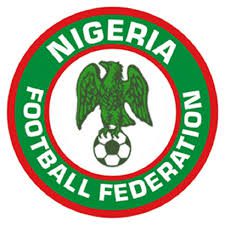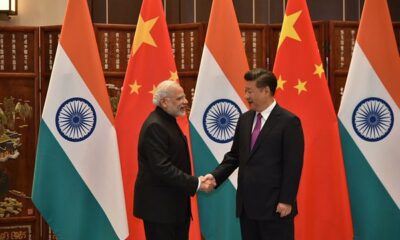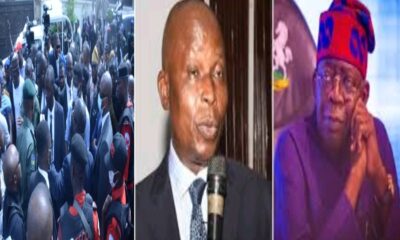Sports
Nigerian football and the albatross of technical deficiency (2), -By Paddy Ezeala

Being the concluding part of an opinion by Paddy Ezeala. The first part was published last week.
A technical analysis of our semi-final exit against Senegal in Mali 2002, against Tunisia in Tunisia 2004, against Cote d’Ivoire in Egypt 2006, and against Ghana in Angola 2010 will reveal in-depth tactical deficiencies on the part of the Super Eagles. Ghana 2008 is better forgotten while Super Eagles performances after the victory in South Africa 2013 have made a hard-won victory look like a fluke.
Such analysis here would only serve to belabour the point. Why is it that the female national team, the Super Falcons have almost won every edition of the African Women Championship but have failed to make the knock-out stages at global tournaments? Why is it that we have failed to impress at the higher echelon of age-grade tournaments, minus Saudi ‘89 and The Netherlands 2005?
The truth is glaring. We are operating under serious technical limitations. It should be noted that this write-up is not part of a campaign for a foreign coach to handle our national teams. It is also not geared towards running down coaches foreign or local who have contributed their quota to the development of the game in Nigeria.
What should bother us is the question of how the game of football took a plunge to the level it is today. We just lost ten steps in FIFA ranking this month. Our team of the near future – the Flying Eagles – just came back from the global tournament earlier than anticipated reason being everything but the quality of the players. The FIFA Women’s World Cup just ended with the coach of the Nigerian team declaring that they had learned quite some lessons and were going back to the drawing board. One continues to wonder the capacity of this drawing board and for how long we would continue going back to it.
The truth of the matter is that majority of our local coaches lack technical depth and since one cannot give what one hasn’t got, they also lack the ability to instill tactical discipline in the players. How many match reports from Nigerian coaches are in the files of the Nigerian Football Federation (NFF)? The performance of some of the coaches at post-match press conferences has been to say the least embarrassing. Some even shy away from press conferences after serious matches. A post-match conference is a very simple way of evaluating a coach’s grasp of the game, his approaches and challenges.
If it were possible for me to conclude this piece without mentioning any names, I would have done so. But how possible is it? It is gratifying to note that the NFF has settled for Sunday Ogochukwu Oliseh as the Technical Adviser of the Super Eagles. Oliseh is the most qualified among his peers in the business of coaching.
He comes closest in bridging the local-foreign coach dichotomy. He played football at the highest level and in the most number of European football clubs for a Nigerian. He holds a Business Management Diploma, the U.E.F.A “B” (Basic) Coaches Diploma, the U.E.F.A “A” (Advanced) Coaches Diploma and the U.E.F.A “Professional” Coaches License. He however does not have much coaching experience apart from coaching a Division Two club in Belgium. Little wonder the NFF has opted for a consortium of coaches to work with him including a foreign coach. There is no doubt that whoever thinks in this direction means well for Nigerian football.
I do not subscribe to the view of one ex-international, a former captain of the Green Eagles and a sports columnist that bringing in a European to work with Oliseh is improper since there are many local coaches capable of filling the position. This claim is not true. We do not have a coach locally who is capable of injecting the modern European technical flair into our game.
We must accept this fact and then work towards developing over time highly technically sound and versatile local coaches. Our national teams should not be made rehabilitation grounds for our ex-footballers. There are still many ways in which they can contribute positively to the growth of the game of football in Nigeria.
Issues still remain. Does Sunday Oliseh have the temperament to lead a national team as a technical adviser? I am afraid and even tremble to say no. He appears to be a temperamental and highly volatile character concealed in outward docility and withdrawn mien. I stand to be countered, though. This is neither out of place nor intractable. What is required is a proper understanding by his employers of this disposition and professional handling. The presence of a highly qualified psychologist should be imperative in ensuring the desired on and off-the-pitch conviviality and calm nerves required to achieve results.
It should be noted that the appointment of a coterie of coaches to handle our national teams remains a stopgap measure. A culture of sound technical development must be entrenched in our football administration. Partnerships with local and foreign universities and coaching academies and clinics must be developed to raise the quality of understanding of the game. Manpower in all ramifications should be developed in the interest of the game. Coaches and referees should start career development early enough in life and not just veer into them only as soft landing in retirement.




















